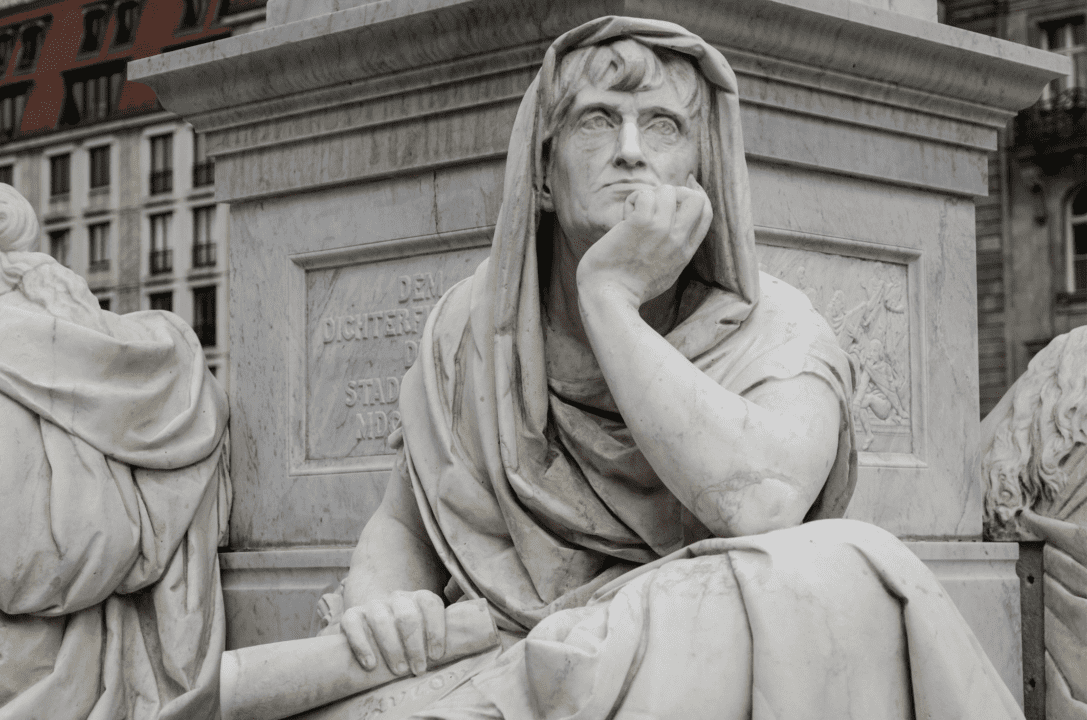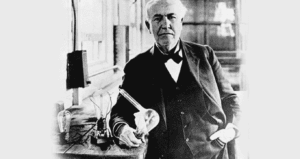
Getting started
 s we are going to see in this article, philosophy has a tremendous influence on our pursuit for knowledge. Thinkers have changed our understanding of the cosmos and offered critical discoveries, from ancient thinkers to current visionaries like Elon Musk. By studying philosophy, we get a deeper understanding of ourselves, question our prejudices, and gain more clarity in dealing with life’s issues.
s we are going to see in this article, philosophy has a tremendous influence on our pursuit for knowledge. Thinkers have changed our understanding of the cosmos and offered critical discoveries, from ancient thinkers to current visionaries like Elon Musk. By studying philosophy, we get a deeper understanding of ourselves, question our prejudices, and gain more clarity in dealing with life’s issues.
Understanding the term “Philosophy“
Philosophy is crucial in this transforming process. It is a way of life as much as an academic discipline. It inspires us to examine our beliefs critically, question our assumptions, and dive deeper into the meaning of life. The study of philosophy enables us to have a deeper understanding of ourselves and the world around us. “The essence of all beautiful art, all truly magnificent art,” philosopher Friedrich Nietzsche famously stated, “is gratitude.” Philosophy broadens our perspectives, allowing us to understand the richness of other civilizations and the diversity of human experiences.
In our pursuit of wisdom, philosophy guides us to explore fundamental questions that have puzzled humanity for centuries. By reflecting on these questions, we can gain insights into our existence and reality. Philosophy invites us to ask profound questions about the meaning of life, the nature of knowledge, the existence of free will, and the foundations of morality. It encourages us to engage in thoughtful dialogue and intellectual inquiry, seeking knowledge and wisdom.
“Judge a man by his questions rather than his answers.”
Voltaire
The Pursuit of Wisdom
Philosophy is the pursuit of wisdom, which goes beyond the amassing of information. Wisdom entails more than simply academic comprehension; it also entails the practical application of knowledge and the cultivation of values such as compassion, humility, and integrity. Philosophy provides a framework for analysing and contemplating wisdom, allowing us to make informed judgements, establish ethical attitudes, and live meaningful lives.
“Knowing others is intelligence; knowing yourself is true wisdom.”
Lao Tzu
Wisdom is a lived experience that directs our actions and decisions, not a theoretical concept. Philosophy encourages us to consider our ideals, evaluate our prejudices, and develop self-awareness. We get insights into our strengths and flaws via self-reflection, helping us to make good decisions and accept responsibility for our life. Wisdom guides us through life’s difficulties, providing insight when faced with difficult decisions or moral dilemmas. As philosopher Aristotle noted, “Knowing yourself is the beginning of all wisdom.”
Socrates and Wisdom

Socrates, an eminent philosopher of ancient Greece, emphasized wisdom. He famously said, “The only true wisdom is knowing you know nothing.” Socrates believed that true wisdom lies in recognizing the limits of our knowledge and constantly questioning our assumptions. His teachings emphasized self-reflection, intellectual humility, and truth through dialogue and inquiry. Socrates believed in the transformative power of philosophical discussions, which he conducted through a method now described as the Socratic method.
The Socratic method involves probing questions aimed at uncovering deeper insights and challenging preconceived notions. By engaging in meaningful discourse, Socrates encouraged individuals to examine their beliefs critically and arrive at more informed perspectives. Through the Socratic method, Socrates fostered intellectual humility and encouraged individuals to seek wisdom through self-reflection and dialogue with others. This method continues to be relevant today, as it promotes critical thinking and helps us uncover hidden biases and assumptions that hinder our pursuit of wisdom.
As Socrates himself stated, “An unexamined life is not worth living.”
Philosophy and Wisdom in the Digital Age

In the digital age, philosophy finds new avenues of expression and engagement. Figures like Elon Musk, the renowned entrepreneur and visionary, recognize the value of philosophy. They also recognize its potential to foster critical thinking, creativity, and meaningful connections in the digital realm. Philosophy equips us with the tools to navigate the complexities of the modern world, discern truth from misinformation, and make ethically informed decisions. Elon Musk, known for his visionary ideas and transformative technologies, once stated, “If something is important enough, even if the odds are against you, you should still do it.”
It provides the intellectual foundation and ethical framework necessary to tackle the pressing issues of our time, such as artificial intelligence, climate change, and the ethical implications of technological advancements.
As we navigate the digital landscape, philosophy reminds us of the importance of contemplation, reflection, and critical thinking. The abundance of information and rapid pace of communication in the digital age can often lead to superficial engagement and loss of deeper understanding. Philosophy however encourages us to slow down, reflect, and ask meaningful questions. By incorporating philosophical principles into our virtual interactions, we can cultivate empathy, promote respectful dialogue, and develop a more nuanced understanding of complex issues.
Applying Philosophy to Everyday Life
Philosophy benefits extend beyond academia. Philosophical concepts and principles can be applied to various aspects of life, such as personal relationships, professional endeavors, and societal challenges. By embracing philosophical thinking, we cultivate empathy, improve our communication skills, and gain a deeper appreciation for the complexities of the human experience.
In personal relationships, philosophy teaches us to listen deeply, understand different perspectives, and engage in meaningful conversations. By applying philosophical principles such as compassion, empathy, and open-mindedness, we foster healthier and more fulfilling connections with others. “All real living is meeting.”
It also has practical implications in the professional world. By employing critical thinking skills, ethical reasoning, and a broader understanding of the human condition, we can navigate ethical dilemmas. We can also foster a positive work culture and make informed decisions. Philosophy encourages us to consider the long-term consequences of our actions, align our work with our values, and strive for personal and societal growth.
On a broader scale, it enables us to engage with societal challenges and contribute to positive change. By analyzing social issues from philosophical perspectives, we gain insights into the underlying causes and develop informed solutions. Philosophy encourages us to question societal norms, challenge oppressive systems, and work towards a more just and inclusive society.
Wisdom in the Modern World
In this modernized era of an information-driven society, wisdom is more crucial than ever. We may manage the modern world with greater clarity and purpose if we incorporate philosophical notions into our lives. Philosophy gives us the tools we need to analyse complicated topics, separate fact from fiction, and make ethical judgements.
Wisdom enables us to traverse the digital realm attentively and analyse the information offered to us critically. In a world where fake news and disinformation abound, knowledge assists us in distinguishing between trustworthy sources and deceptive material. Wisdom instills healthy scepticism in us, as well as the desire to question, investigate, and verify information before accepting it as true.
“The trouble with the world is that the stupid are invincible and the intelligent are full of doubt.”
Bertrand Russell
Furthermore, knowledge helps us to confront ethical issues raised by technical advances. As artificial intelligence becomes more embedded into our lives, sound decision-making becomes more important. The ethical implications of AI, privacy problems, and the influence of automation on human labour necessitate careful analysis and educated decisions. Philosophy offers the intellectual foundations required to address these difficult concerns and guarantee that technology serves humanity’s best interests.
Conclusion
From Socrates to Elon Musk, Philosophy has stood the test of time and continues to provide significant insights and revolutionary ideas. We engage on a path of self-discovery, critical thinking, and the search of knowledge when we embrace it. Philosophy enables us to meaningfully question, reflect, and engage with the world, eventually revolutionising our pursuit of wisdom.
Recommended Books
Most Asked Questions about Philosophy & Wisdom
Q. How is philosophy a pursuit of wisdom?
Philosophy involves the systematic examination of fundamental questions and concepts, leading to a deeper understanding of ourselves and the world. By critically analyzing knowledge, values, and reality, it helps us navigate life’s complexities and make wiser choices.
Q. What does Socrates say about wisdom?
Socrates believed that true wisdom lies in recognizing ignorance. He emphasized the importance of self-reflection, questioning assumptions, and engaging in thoughtful dialogue to uncover deeper insights and arrive at more informed perspectives.
q. How does the Socratic method discover wisdom?
The Socratic method employs probing questions and critical thinking exercises to elicit deeper insights and challenge preconceived notions. By engaging in meaningful discourse and intellectual inquiry, the Socratic method aids in the discovery of wisdom.
Q. How can doing philosophy help or lead us to wisdom and truth?
Philosophy cultivates critical thinking skills, ethical reasoning, and the ability to analyze complex issues from multiple perspectives. By engaging in philosophical inquiry, we develop a deeper understanding of ourselves and the world. This enables us to make more informed decisions and pursue wisdom and truth.




